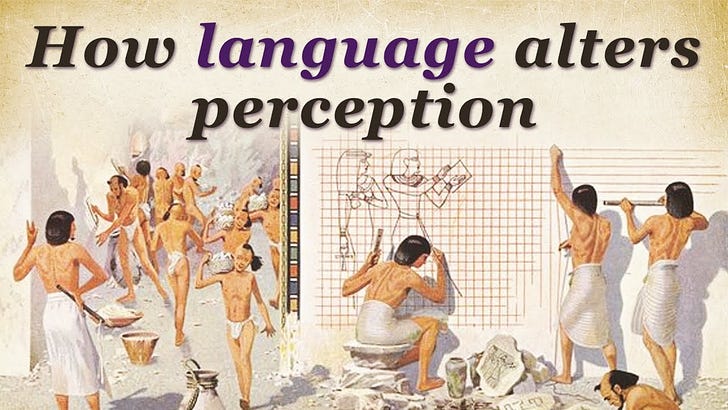IS TIME MONEY? (On Marx's labour theory of value)
Or does Money simply exist to make Thievery seem Just?
Hey Folks!
It’s Reader Appreciation Day!
In this edition, I’ll be featuring Evelyn Brunswick, who has been my most prolific commenter of late.
In preparation for the coming Bitcoin halving, which is about two weeks away, I’ve been educating myself about economics, which was never a major interest of mine until I got obsessed with the work of David Graeber.
Before, I always assumed that the entire field of economics was mostly just of a bunch of bullshit invented to make thievery and extortion seem respectable.
WHY I AM NOT NOT A MAXIMALIST
Hey Folks, As you may be aware, the Bitcoin halving will be this month. I’m hoping that it will be happen on 4/20. If it does, I’m going to take that as a sign. For years, I have been a quasi-Bitcoin maximalist, for the simple reason that I think that it is superior in every conceivable way to fiat currency, which Bitcoin renders obsolete.
Evelyn wrote:
I'm going to have to disagree with quite a bit of this, in particular one of your key comments which is that one of the principles of 'money' is 'limited supply'.
No, no, no and no again. This is precisely the myth the cabal tell people in order to keep them subjugated, poor, and dependent. Like 'sorry, poor people, but there's no money left, there's no magic money tree [despite the fact that we, the bankers, have something called a printing press] and so we can't spend money on public services for you.' Oh, we can find money for war, sure, but ending poverty? fuck that! Decent healthcare? Education? Fuck off. We're in charge here. Get back to work. Now believe everything we tell you about money.
The other great lie is the 'value' of money having to be unfixed and open to change (which is always due to speculation and arbitrary price increases). Remember the great lie about inflation is that it's somehow intrinsic to 'economics' as if there's no human agency involved. Sorry, but prices don't put themselves up - people put prices up. The price of everything is arbitrary.
'Everything is worth what its purchaser will pay for it'.
Dang. She’s got a point. What do you say to that?
In a more recent piece, I proposed defining money as “an elaborate system of disguised extortion characterized by a centralized ledger of circulating debt obligations, ultimately backed up by the threat of violence.”
Does my definition need to be revised?
WHY "WHAT IS MONEY?" IS THE WRONG QUESTION
Hey Folks, Not too long ago, Whitney Webb appeared on podcast called “What is Money?” I hadn’t heard of the show before, but the host did a great job of interviewing her. He also name-dropped James C. Scott, which is always a good sign. My interest was piqued.
DOES PRINTING MONEY TRULY WATER DOWN THE MONEY SUPPLY?
I’ll admit, I tend to think of “quantitative easing” as a watering-down of the money supply. I was actually thinking of writing something using the metaphor of Moe Syzslak watering down alcohol to talk about inflation.
Evelyn’s comment made me rethink those assumptions that begin by assuming there’s a limited quantity of some finite substance.
But money is imaginary. It can be created by decree. Money is fiat currency, and fiat means “by decree”.
Evelyn is absolutely right that there are indeed magical money trees - they’re called banks.
I had to the hit the books to come up with a decent answer to this. Fortunately, I had David Graeber’s The False Coin of Our Own Dreams close at hand.
My understanding of economics is highly influenced by Marx, because before David Graeber there was no anarchist equivalent to Marx’s analysis.
Leftist anarchists has long relied on Marx’s economic analysis while rejecting his political program.
Now that we have the work of David Graeber, there is no reason to keep relying on Marx’s outdated and deceptive system.
Let’s start with his theory of value.
Marx’s theory of value
The first thing one should probably say about Marx’s labor theory of value is that it’s not the same as David Ricardo’s. People often confuse them.
Ricardo argued that the value of a commodity in a market system can be calculated in terms of the “man-hours” that went into making it, and therefore it should be theoretically possible to calculate precisely how many people worked how long in the process of making it (and, presumably, making the raw materials, shipping them from place to place, and so on.)
In fact, Marx felt Ricardo’s approach was inadequate. What makes capitalism unique, he argued, is that it is the only system in which labor—a human being’s capacity to transform the world, their powers of physical and mental creativity— can itself be bought and sold. After all, when an employer hires workers, he does not usually pay them by the task completed: he pays them by the hour, thus purchasing their ability to do whatever he tells them to do during that period of time.
Hence, in a wage-labor economy, in which most people have to sell their capacity to work in this way, one can make calculations that would be impossible in a non-capitalist society: that is, look at the amount of labor invested in a given object as a specific proportion of the total amount of labor in the system as a whole. This is its value.
The concept makes much better sense if one bears in mind that Marx’s theory of value was not meant to be a theory of prices. Marx was not particularly interested in coming up with a model that would predict price fluctuations, understand pricing mechanisms, and so on…Therefore, he by no means assumed that price paid for something was an accurate reflection of its worth.
Seems like Marx would have agreed with the statement “everything is worth what the purchaser will pay for it.”
THE MYTH OF FINITE MONEY
The next part is very interesting, because I think this is the assumption most people are working from when they think of inflation of as watering-down of the money supply.
It might be better, then, to think of the word “value” as meaning something more like “importance.” Imagine a pie chart, representing the U.S. economy. If one were to determine that the U.S. economy devotes, say, 19 percent of its GDP to health care, 16 percent to the auto industry, 7 percent to TV and Hollywood, and .2 percent to the fine arts, one can say this is a measure of how important these areas are to us as a society. Marx is proposing we simply substitute labor as a better measure: if Americans spend 7 percent of their creative energies in a given year producing automobiles, this is the ultimate measure of how important it is to us to have cars.
One can then extend the argument: if Americans have spent, say, .000000000007 percent or some similarly infinitesimal proportion of their creative energies in a given year on this car, then that represents its value. This is basically Marx’s argument, except that he was speaking of a total market system, which would by now go beyond any particular national economy to include the world.
Hmmmmmmmm……… Sounds plausible enough, I guess. Indeed, I think this would be common sense to many people, including professional economists. I think most assume that there is a finite amount of economic activity in the world, and money is a represents the sum total of that activity.
Maybe that’s true on some level, but it makes less sense the more you think about it. How does this work exactly? What about all the people working under the table, for instance? In Mexico, that’s probably more than 50% of people.
Graeber continues:
As a first approximation then, one might say that the value a given product—or, for that matter, institution—has is the proportion of a society’s creative energy it sinks into producing and maintaining it. If an objective measure is possible, it would have to be something like this. But obviously this can never be a precise measure. “Creative energies,” however they’re defined, are not the sort of thing that can be quantified.
“Is everything is worth what the purchaser is willing to pay for it?”
I’m not sure that I agree with the statement that “everything is worth what the purchaser is willing to pay for it”. That might true for buyers, but things look a little different from a seller’s perspective. After all, you might find some sucker to buy an obviously fake gold chain, but what they paid for it doesn’t reflect the market value of that item. I would propose instead the price of something would be determined by what TWO people would be willing to pay for it.
If I have something that is in short supply, let’s say a Picasso painting, and it is auctioned off, we know for a fact that if the person with the highest bid hadn’t bought it at that price, someone else would have bought it with the next-highest bid. I would argue that the true market place of that painting is the second-highest bid. I’ll return to this thought in a moment.
Graeber continues:
The only reason Marx felt one could make such calculations—however approximate— within a capitalist system was because of the existence of a market in labor. For labor—in effect, human capacities for action, since what you are selling to your boss is your ability to work—to be bought and sold, there had to be a system for calculating its price.
There are cultural standards, then, by which labor can be reduced to units of time, which can then be counted, added, and compared to one another. It is important to stress the apparatus through which this is done is at the same time material and symbolic: there have to be real, physical clocks to punch, but also, symbolic media of representation, such as money and hours.
ACCORDING TO MARX, MONEY IS TIME
So, according to Marx at least, time really is money. Money is the sum total of all time (i.e. wage labour) which is circulating at any given time. If that were true, then money truly is finite.
Let’s return to the idea that the true market value of something is what two people are willing to pay for something. How does that apply to wage labour?
Surprisingly well, actually. We all know that some people’s time is more valuable than others. If you’re a corporate lawyer, you might be paid a thousand dollars an hour. If you’re you’re an anarchist philosopher, you get diddly squat. Why?
Well, because there are a lot of corporations willing to spend money on lawyers, the corporate lawyer can sell his time to the highest bidder.
If you are middle-aged, out-of-shape, and unskilled, things work differently. Your labour isn’t worth much, because an employer could could easily replace you.
There really is something to the whole logic of supply and demand. Things do work this way. Some people’s time is worth more than others. Like it or not, it’s true.
Wages are determined by the tolerance of workers. If an employee is happy with what they’re being paid, they’re not likely to go out of their way looking for another job. If they aren’t, they may quit. Do you see how this is kind of similar to an auction? This is what people mean way they talk about market value.
The market does operate according to a certain logic, which has everything to do with buying and selling, which is largely determined by supply and demand. This much is true.
So, does my Moe Szyslak analogy work? Well, by definition, inflation is an increase in the price of living. If the price of living goes up and wages stay the same, that person is effectively earning less. Hence inflation impoverishes working class people.
Is that a bug of the system, or a feature? Could it be both?
But none of this means that the total amount of money there is in an economy derives its value from wage labour. Indeed, the whole process of how time is supposedly transformed into value seems quite mystical. Maybe I just don’t understand how that works yet, but I’m guessing that it’s simply not true.
I think what money actually measures is what people will put up with. You know that famous Frederick Douglass quote?
Power concedes nothing without a demand. It never did and it never will. Find out just what any people will quietly submit to and you have found out the exact measure of injustice and wrong which will be imposed upon them, and these will continue till they are resisted with either words or blows, or with both. The limits of tyrants are prescribed by the endurance of those whom they oppress.
If you think about it, that makes sense, doesn’t it?
My conclusion is this: printing money does not literally dilute the value of money, but it impoverishes the working class, so the result is the same.
As for there being a limited supply of money, I think I’m technically right, although that supply isn’t limited by the amount of goods or services being traded, or by the sum total of “time”. Rather, the limits to the supply of money are determined by the decree of the international banking cartel that was created by the Brettons Woods system at the end of World War II.
In every country but Iran and North Korea, the supply of money is limited by a single institution - the Bank of International Settlements, the central bank of central banks.
Let’s have another look at my proposed definition of money:
“An elaborate system of disguised extortion characterized by a centralized ledger of circulating debt obligations, ultimately backed up by the threat of violence.”
Does it need to be changed? I think it stands, but I also see an easy way to improve it.
“An elaborate system of disguised extortion characterized by a centralized AND ALTERABLE ledger of circulating debt obligations, ultimately backed up by the threat of violence.”
In other words, the whole game is rigged.
MAFIA CAPITALISM 101
Hey Folks, It’s READER APPRECIATION DAY! Yeah, yeah, I know, so soon. Well, it seems like you guys really liked the last edition, so I thought I’d follow up. If you didn’t know, reader appreciation day is when I take some time to respond to comments left by readers.








Evelyn is correct. Printing money does not inherently lead to anything. Every self-declared (ie, arbitrary) “sovereign” prints money; it’s what is then done about monetary and fiscal policy that determines what happens with the “relative worth” of that money. (It also, of course, matters what the BIS and the other lizard banker asshats do!) I am firmly in the camp of re-figuring out how to trade locally for all the stuff I need - as much as possible - because whatever type of awesome and not lizard-controlled money system is theoretically possible (sans inflation and support for all the really good stuff and all that), here on earth we got a lizard control problem and they be all about the money. Ain’t no money printing happening that they ain’t got their lizard claws into. So, until we get them locked up or buried or off the planet, we gotta get creative on both the money and value fronts.
Was money originally a token of grain? The yen was based on rice and the French slang for monry is ble. Just a hunch.
Now I'd say it's a token of energy. When you pay someone by the hour, you're paying them to do or not do something: the doing is the bit you're paying for.
Fiat currencies are an abstract claim on energy that assumes no limit to that claim. In my opinion if you just print money without it being based on anything of limited amount (like rice) and spend it, you are using imagination to bring into existence physical things, aka magic. If it was based on rice, etc, then printing more would lessen its value.
People who pay millions for a picasso painting are in a power display, showing how they control the energy of millions of other people, who they don't give a shit about. Off with their heads!
I'd also suggest that money, the economy, etc are hyperobjects beyond the ability of anyone to understand, and economists are full of shit. They just say what wetikos want to hear, so they can justify their greed to the scraps of concience they have left. Bit like priests.